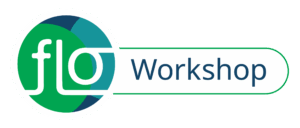*Note: This session has passed. Please view the recording and resources below.
About the Event
As artificial intelligence and algorithmic tools become increasingly embedded in educational technologies, such as plagiarism detection systems and adaptive learning platforms, faculty must grapple with both their potential and their pitfalls. While these tools promise efficiency and personalization, they can also reproduce and amplify biases. These biases can influence everything from automated grading and learning analytics to recruitment and admissions processes, often invisibly. This workshop will continue the conversation on algorithmic literacy where we will critically evaluate how algorithmic systems work, whose values they encode, and how they impact diverse learners. Participants will explore how algorithmic bias manifests in educational settings, examine the structural inequities it reinforces, and consider strategies to mitigate harm. 
By the end of the session, participants will be able to:
- Recognize how biases are perpetrated by algorithmic systems and educational technologies
- Identify which student groups are most affected by these biases
- Apply principles of algorithmic literacy to evaluate and use educational technologies more equitably
- Develop practical approaches to supporting students who may be disproportionately impacted
Recording and Resources
- Transcript – FLO Workshop: Algorithmic Bias in Education: Risks, Realities, and Responsibilities (PDF)
- Transcript – FLO Workshop: Algorithmic Bias in Education: Risks, Realities, and Responsibilities (Word)
- Slides – FLO Workshop: Algorithmic Bias in Education: Risks, Realities, and Responsibilities (PDF)
- View recording on media.bccampus.ca
About the Facilitator
Britt Dzioba (she/her) is a Learning and Teaching Advisor with BCcampus where she works to support educators grow their digital skill sets through resource development. Britt holds a master of education from the University of British Columbia, where her graduate research focused on digital literacy education in community-based programs. Currently, her research interests are developing digital literacies among educators, supporting neurodiversity in higher education, and emergent educational technologies.
